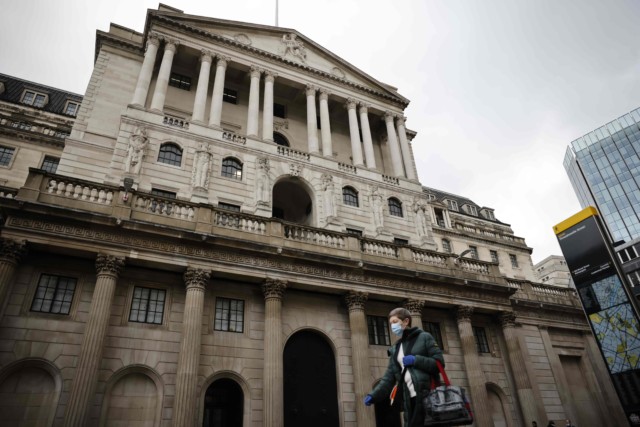THE Bank of England will decide today what’s next for interest rates and there is speculation they could turn negative – but what does it mean for your finances?
The central bank has been looking into whether it is possible to take the base rate below zero to help the economy recover from the impact of the coronavirus pandemic.
Read our coronavirus live blog for the latest news & updates
The Bank of England will decided whether to change the base rate today
In September it launched a consultation with banks to see how they would handle the unprecedented move before taking action.
Today, it is expected to make a decision over whether negative interest rates would be viable and whether to change the base rate.
It is currently set at a record low of 0.1% amid the uncertainty of the pandemic.
If the central bank takes rates below zero, it could see savers pay banks to hold their cash and lenders pay borrowers to take out loans and credit.
However, it is unlikely that rates will be taken negative today – but it’s not yet been ruled out as something to consider in the near future.
Laith Khalaf, financial analyst at AJ Bell: “Given the picture is still unfolding, the Bank’s interest rate committee will probably sit on their hands for now, particularly seeing as they are running out of monetary policy ammunition.
“The Treasury is throwing vast sums of money at the economy, and that means monetary policy doesn’t have to do all the heavy lifting.”
He added part of the challenge for the bank is that the true impact of the pandemic on the economy is distorted because of government schemes like furlough and Covid grant schemes.
“It remains to be seen just how badly the economy has been scarred once these sticking plasters have been removed,” he said.
How will negative interest rates affect your savings?
Banks and building societies use the base rate to decide how much they charge borrowers and pay savers.
Negative rates will affect savings, pensions and investments, as well as loans, mortgages and credit.
Savers could see banks and building societies charge them to hold their cash, instead of earning interest on them.
Personal finance expert at Hargreaves Lansdown, Sarah Coles, previously told HOAR that we’re unlikely to see negative rates on personal savings accounts.
She said: “Banks are very wary about introducing them, because there’s a risk people will withdraw their money and either spend it or keep it lying around the house.
“So we’d be more likely to see charges being introduced on accounts, to recoup the cost of holding money without specifically charging interest.”
Borrowing could become cheaper too, particularly mortgage deals.
And while it’s unlikely that lenders will pay borrowers to take out a loan by dropping rates below zero, Sara added that “it’s not impossible”.
But there are also warnings that negative interest rates could make lenders more reluctant to extend loans if you are unable to keep up with repayments.
This could be devastating at a time when millions of borrowers are relying on temporary coronavirus payment holidays on debts, such as car finance deals, overdrafts and mortgages.
Steven Cameron, pensions director at Aegon told HOAR: “The intention [of taking rates negative] may be to encourage spending to get the economy ticking over at a faster rate, but the prospect of individuals being charged to keep money in the bank would be a real game changer and it’s not clear how savers might react.”
Mr Cameron added: “The pandemic has had widely differing financial implications for individuals.
“Some have lost their jobs or seen their businesses suffer, leading to immediate financial difficulties.
“Others have found that restrictions on what they can do has led to them saving more money every month.
“Despite the super-low interest rates available from high street savings accounts, much of that money is currently sitting in cash.”
If rates do drop below zero, we’ve put together a guide on how to protect your finances.








